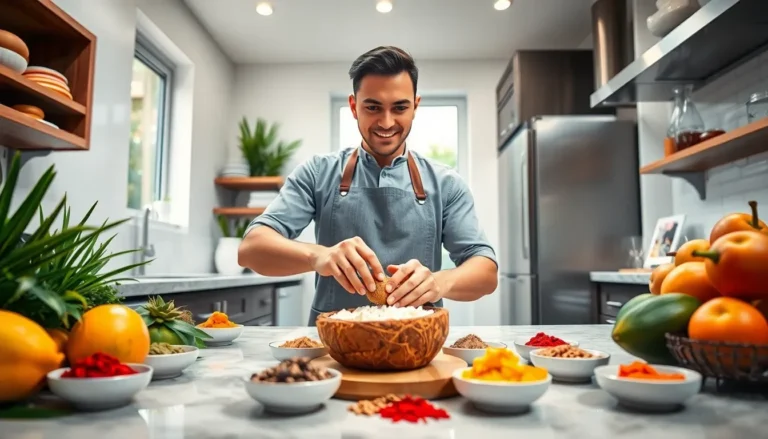Hydration isn’t just about drinking more water — it’s about giving your body what it needs to feel energized, clear, and supported throughout the day. When you’re hydrated, you’re more focused, digestion feels smoother, your mood stays balanced, and your skin often shows it too.
We’ve spoken with a few experts in the field, and here’s the good news — staying hydrated doesn’t have to feel like a chore. With the right natural habits and a little body awareness, hydration can become an effortless part of your daily self-care routine.
Table of Contents
ToggleWhy Hydration Matters: What Your Body Really Needs
Hydration affects almost every system in the body. According to Harvard Health, even mild dehydration as low as 1–2% fluid loss can impact energy, focus, and mood. That’s why you might feel foggy or tired before you even feel “thirsty.”
Rachel Gargano, MS, RD, CSSD, CBS at Live It Up adds: Dehydration isn’t just about thirst — it’s about energy loss, mood changes, and slower recovery. When you feel an afternoon crash coming on, dehydration is often the hidden cause.
Hydration helps support:
- Digestion and nutrient absorption
- A steady, clear mental state
- Natural energy production
- Comfortable temperature balance in the body
- Electrolyte balance, which helps muscles and nerves function smoothly

How Much Water Do You Really Need?
You’ve probably heard “drink eight glasses a day,” but hydration isn’t one-size-fits-all. Your body’s needs shift depending on:
- Movement and sweat levels (even light walking or yoga counts!)
- Climate and humidity
- Foods you’re eating — salty, caffeinated, and high-protein foods require more water for balance
- Body size and metabolic rate
A common benchmark is around 128 ounces (one gallon) of fluid per day — but that includes water-rich foods too. Instead of obsessing over a number. Rachel Gargano, MS, RD, CSSD, CBS recommends: Generally, people should be aiming to get about 128 ounces, which is a gallon, of fluid per day.
Natural Ways to Stay Hydrated (Beyond Just Water)
Kat Benson, CSSD, CPT at VNutrition adds: Water is essential, but nature gives us hydrating foods and drinks that add electrolytes and minerals your body loves.
Hydrating foods to sprinkle into your day:
- Cucumber slices with a sprinkle of sea salt
- Fresh watermelon or citrus segments as a snack
- Leafy greens like romaine, spinach, and zucchini tossed into meals
- Oranges and berries for a sweet hydration boost
Benson, recommends drink options that hydrate naturally:
- Coconut water for a gentle hit of electrolytes
- Herbal teas like mint, hibiscus, or chamomile
- Water infused with lemon, cucumber, or berries to make sipping feel like a ritual

Hydration and Skin Health: The Inside-Out Connection
Think of internal hydration as your skin’s most foundational moisturizer. Topical products — like hyaluronic acid — can support surface hydration, but skin looks and feels its best when it’s nourished from the inside.
Common Hydration Myths (Let’s Clear These Up)
For this part Rachel Gargano, MS, RD, CSSD, CBS helped us demystify some common hydration myths you’ve probably heard:
- “Coffee dehydrates you.”
Moderate coffee still contributes to hydration — it’s not automatically dehydrating. - “You can’t overhydrate.”
You can. Drinking excessive plain water without electrolytes can dilute your system. Balance is key. - “Clear urine means perfect hydration.”
Completely clear urine can actually signal overhydration. Pale, straw-toned is your sweet spot. - “Nutritional downsides to drinking sparkling water”
The acid used to make sparkling water could potentially degrade tooth enamel if consumed excessively. For example, using sparkling water as your sole source of hydration throughout the day, it could negatively harm your tooth integrity. It can also cause gas and bloating for some people.

Your Simple Daily Hydration Routine
No strict apps. No timers. A simple rhythm is enough:
- Morning: Drink a glass of water before any caffeine. It gently wakes digestion.
- With Meals: Sip water or infused water alongside food to help your body process it more comfortably. Rachel Gargano, MS, RD, CSSD, CBS also recommends green powders as an excellent source of both nutrition and hydration.
- Afternoon: Feel a slump coming on? Reach for coconut water, citrus slices, or cucumber instead of another coffee.
- Evening: Herbal tea signals to your body that the day is winding down — and adds one more layer of calm hydration.
The Bottom Line: Hydration Is Self-Care
Hydration isn’t about perfection or strict rules — it’s about listening to your body, noticing when you need a refreshing reset, and choosing simple ways to replenish.
A hydrated body moves better, thinks clearer, and feels more balanced. That’s the real wellness glow.


